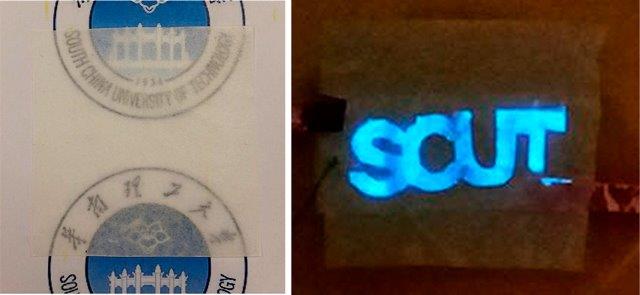FOR IMMEDIATE RELEASE
ACS News Service Weekly PressPac: May 17, 2017
Conductive paper could enable future flexible electronics
"Ionic Gel Paper with Long-Term Bendable Electrical Robustness for Use in Flexible Electroluminescent Devices"
ACS Applied Materials & Interfaces
Roll-up computer screens and other flexible electronics are getting closer to reality as scientists improve upon a growing number of components that can bend and stretch. One team now reports in the journal ACS Applied Materials & Interfaces another development that can contribute to this evolution: a low-cost conductive paper that would be easy to manufacture on a large scale.
Current flexible electronic prototypes are commonly built using polymer thin films. But the cost of these films becomes a factor when they are scaled up. To address this issue, scientists have turned to paper, which is renewable, biodegradable and a fraction of the cost of polymer thin films. The downside of paper is that it’s not conductive, and efforts so far to infuse it with this property have been hindered by scalability and expense. Bin Su, Junfei Tian and colleagues wanted to come up with a new approach.
Using a conventional roller process that’s easy to scale up, the researchers coated paper with soft ionic gels to make it conductive. They sandwiched an emissive film between two layers of the ionic gel paper. When they applied a voltage, the device glowed blue, indicating that electricity was being conducted. It also showed electrical durability, withstanding more than 5,000 cycles of bending and unbending with negligible changes in performance and lasting for more than two months. The researchers say their conductive paper, which costs about $1.30 per square meter and could be fabricated at a rate of 30 meters per minute, could become an integral part of future flexible electronics.
The authors acknowledge funding from the State Key Laboratory of Pulp and Paper Engineering (China), National Natural Science Foundation of China and the Australian Research Council’s Discovery Early Career Researcher Award.
Note: ACS does not conduct research, but publishes and publicizes peer-reviewed scientific studies.
Larger Image


